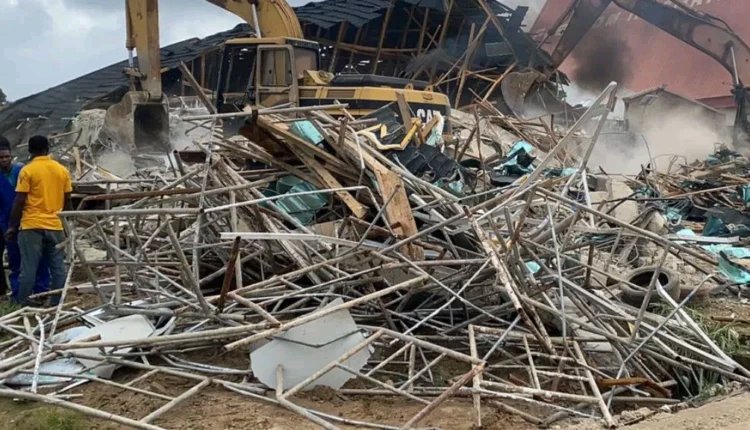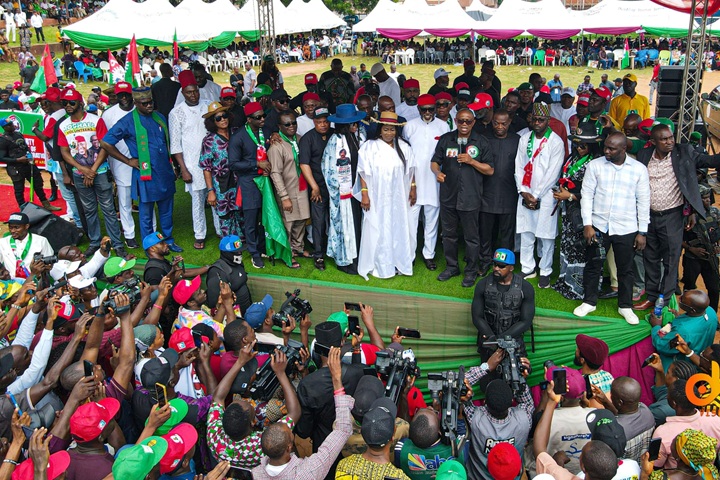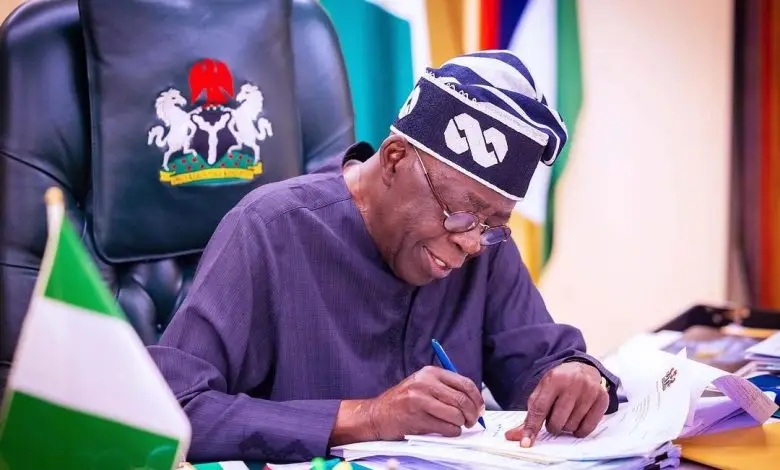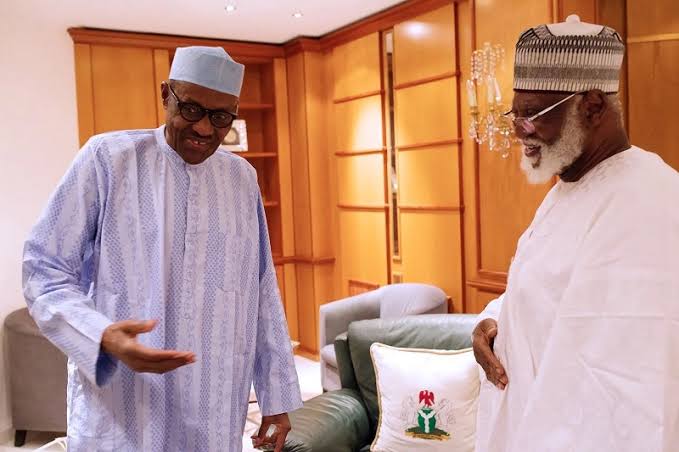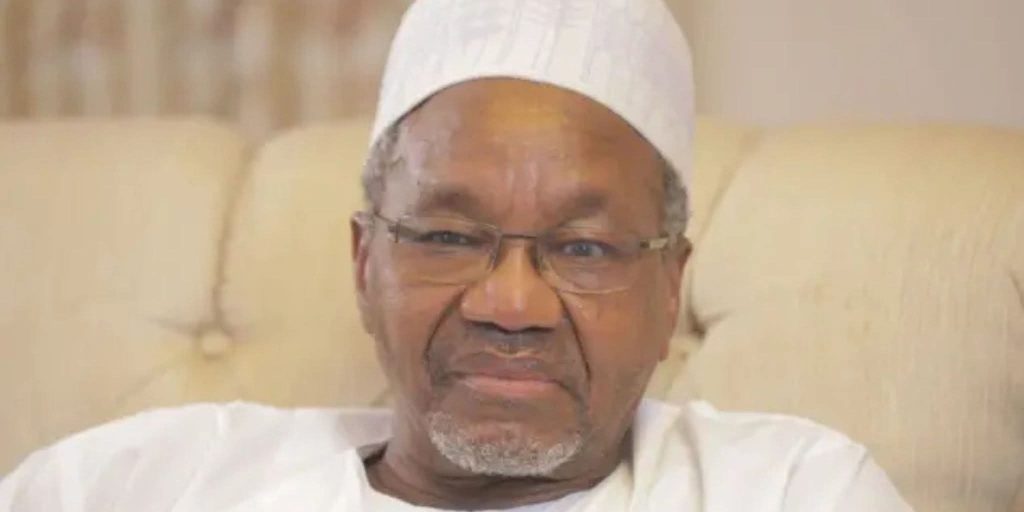Featured
Ohanaeze Ndigbo seeks N10 trillion compensation, apology from Tinubu over 1966 coup misrepresentation
DDM News

The apex Igbo socio-cultural organization, Ohanaeze Ndigbo, has called on President Bola Ahmed Tinubu to issue an official apology and pay N10 trillion in compensation for historical injustices against the Igbo people.
Diaspora digital media (DDM) gathered that the group’s demand follows recent revelations by former military ruler, General Ibrahim Babangida, that the 1966 coup was not an Igbo-led operation, as widely believed for decades.
Ohanaeze Ndigbo argues that this false narrative has led to ethnic mistrust, political discrimination, and economic marginalization of the Igbo since Nigeria’s post-independence era.
Historical background of the 1966 coup and its impact on the Igbo
The January 15, 1966, military coup was the first in Nigeria’s history and led to the overthrow of Prime Minister Sir Abubakar Tafawa Balewa’s government.
The coup resulted in the assassination of key political figures, including Ahmadu Bello, Samuel Akintola, and Tafawa Balewa himself.
Because the coup’s leading officers, such as Major Chukwuma Kaduna Nzeogwu, were predominantly Igbo, it was widely perceived as an ethnic conspiracy against non-Igbo political elites.
In response, a counter-coup occurred in July 1966, led by northern military officers.
This second coup resulted in the killing of many Igbo military officers and civilians, triggering violent anti-Igbo riots in northern Nigeria.
These events set the stage for the Nigerian Civil War (1967-1970), which further deepened Igbo political and economic marginalization.
For decades, the belief that the first coup was an Igbo-led plot fueled policies that systematically excluded the Igbo from key national developments.
According to Ohanaeze Ndigbo, General Babangida’s recent statement proves that the Igbo people were wrongly blamed for the coup, which has led to years of discrimination and oppression.
Ohanaeze’s demands and justifications
Ohanaeze Ndigbo insists that the Nigerian government must acknowledge its role in perpetuating anti-Igbo policies based on this misrepresentation.
The group believes that a formal apology from President Tinubu would be a crucial step toward national reconciliation.
In addition, Ohanaeze Ndigbo is demanding N10 trillion in compensation to address the historical and economic injustices suffered by the Igbo.
The group has outlined specific areas where the compensation should be used, including:
Infrastructure development in the Southeast, such as road rehabilitation and railway expansion.
Investment in industrial projects to boost economic growth in the region.
Support for Igbo businesses that have been affected by unfavorable government policies.
Scholarships and youth empowerment programs to rebuild opportunities for young Igbo professionals.
The organization argues that these measures are necessary to correct decades of exclusion and provide a foundation for lasting peace in Nigeria.
Political and economic marginalization of the Igbo
Since the end of the Civil War in 1970, Ohanaeze Ndigbo claims that the Igbo have faced deliberate political and economic exclusion.
The group points to the continued absence of an Igbo president since Nigeria’s return to democracy in 1999.
It also highlights the lack of major federal projects in the Southeast, despite the region’s economic contributions to the nation.
For instance, railway expansions, industrial zones, and national infrastructure developments have largely bypassed the Southeast.
Igbo traders and business owners have also complained about discriminatory trade policies, import restrictions, and lack of government support.
According to Ohanaeze Ndigbo, these policies are rooted in the false perception that the Igbo were the masterminds of Nigeria’s first coup and, therefore, cannot be trusted with national leadership.
The group argues that correcting this historical falsehood is essential for national unity and stability.
Reactions and national implications
The demand by Ohanaeze Ndigbo has sparked intense debate across the country.
Some political leaders from the North and Southwest argue that compensating the Igbo for historical grievances could open the door for similar demands from other ethnic groups.
However, many Southeast leaders and civil rights activists support Ohanaeze Ndigbo’s call for justice.
They argue that Nigeria cannot achieve true unity without addressing the historical wrongs committed against the Igbo.
Governors and lawmakers from the Southeast have also expressed their support for the demand, stating that justice for the Igbo is long overdue.
The federal government has yet to issue an official response to Ohanaeze Ndigbo’s request.
However, analysts believe that Tinubu’s administration will have to address the issue carefully, as it could impact the political landscape ahead of the 2027 elections.
Some political observers suggest that Tinubu could use the opportunity to build bridges with the Southeast by initiating reconciliation programs and granting economic incentives to the region.
Ohanaeze’s call for national dialogue
Beyond financial compensation, Ohanaeze Ndigbo has called for a national dialogue on restructuring Nigeria’s political system.
The group believes that true reconciliation requires constitutional reforms that will ensure fair political representation for all ethnic groups.
It has urged the federal government to consider policies that will guarantee the Southeast a fair share of political appointments and economic opportunities.
The organization also insists that future presidential power rotations should not continue to exclude the Igbo.
According to Ohanaeze Ndigbo, the long-standing perception of the Igbo as political outsiders must be corrected through deliberate government action.
Conclusion
The demand by Ohanaeze Ndigbo has reignited conversations about historical injustices and the need for national reconciliation.
As Nigeria continues to grapple with issues of ethnic mistrust and political marginalization, many believe that addressing these grievances is crucial for long-term peace and unity.
Whether President Tinubu’s administration will respond favorably to the demands remains uncertain.
However, Ohanaeze Ndigbo has vowed to continue advocating for justice until the federal government acknowledges and addresses the historical injustices suffered by the Igbo people.
For Diaspora Digital Media Updates click on Whatsapp, or Telegram. For eyewitness accounts/ reports/ articles, write to: citizenreports@diasporadigitalmedia.com. Follow us on X (Fomerly Twitter) or Facebook




